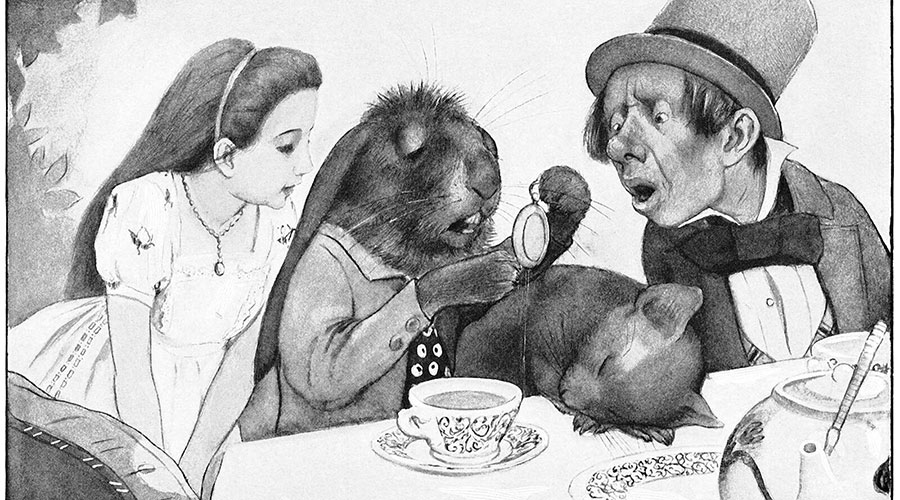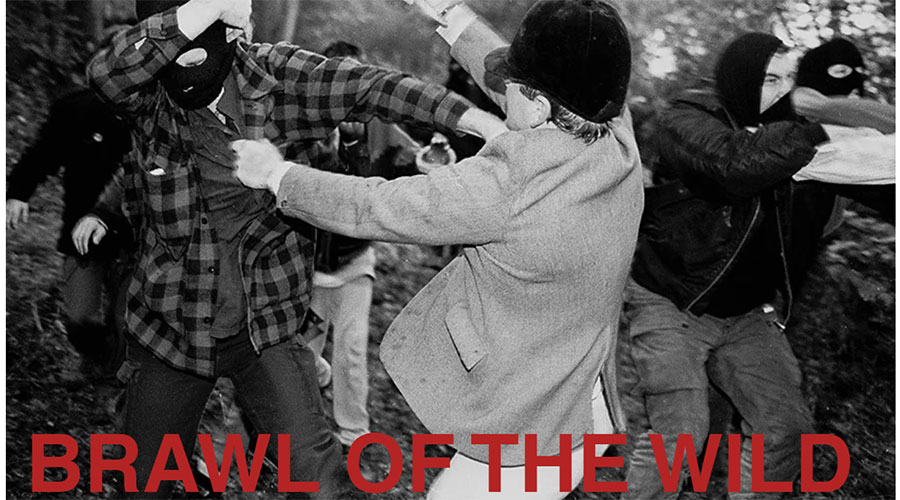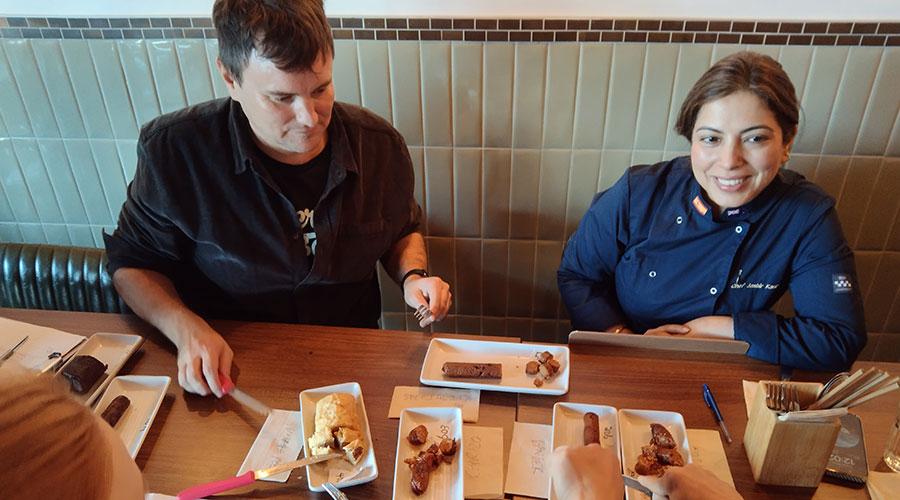Kaupapa Maori: Te reo Maori and Veganism

Chris Huriwai discusses his te reo Māori journey and its intersection with veganism and animal rights activism.
New Zealand Vegan: Can you tell us a little about yourself and your whakapapa?
Chris Huriwai: I’m an animal rights activist currently living at the land occupation of Marukaikuru. I enjoy spending time with my partner, fitting in extreme sports where I can during downtime, am a proud Ngāpuhi boy hailing from Te Whare Tapu o Ngāpuhi, kei Te Tai Tokerau, in the Far North and I’m passionate about contributing what I can to the current struggles of not only ngā kararehe (non-human animals), but also tangata whenua and of course the whenua herself, Papatūānuku and her children, against industrial, colonial, capitalist greed.
I’m fortunate to have whakapapa spanning Te Ika-A-Māui;
On my father’s side I’m bound to Ngāpuhi and Ngati Porou, Ngātokimatawhaorua te waka, Mangatawa te awa, Pukerata te marae.
On my mother’s side I’m bound to Te Ātiawa from Taranaki.
How long have you been vegan and what prompted it?
I’ve been vegan for less than five years. At age 13 or 14, I decided to go vegetarian for ethical reasons — growing up on a rural lifestyle block with farms and death all around you can do this to an animal-lover. Not long after that, I discovered that similar cruel practices that motivated my vegetarianism were still present in the production of other animal products that vegetarianism allows the consumption and use of. After years of mental gymnastics, trying to justify my consumption of cheese, I finally rewatched Earthlings with my partner at the time and we decided to take the step away from animal products and the exploitation of animals, for good.
When did you begin your te reo journey?
I’ve been actively pursuing te reo Māori for only the past couple years and my primary regret is not starting sooner. The why is a long story, so I’ll break it into two parts, along with some context:
Firstly, I grew up in the Far North with a Māori family, in a Māori community and worked through my late teens to mid-twenties for a Māori health organization — not speaking te reo Māori. In fact, I actively worked against all things Māori until I started working in my community. I experienced firsthand the struggles of whānau and, more importantly, within myself, the effects of colonization and its relevance to the socioeconomic status and hardship of tangata whenua, many of who, by no fault of their own, are now second class citizens in our own lands.
I have worked through layers of internalized racism to arrive where I am today. My childhood was spent looking down on those less fortunate than myself, believing that their issues (addictions, crime, disenfranchisement) were inherent to them, and not a result of ongoing colonization. Which brings me to the first ‘why’ for tōku oho, tōku haerenga o te reo Māori, my awakening, my journey of Māori language. It was unjustly suppressed — my grandparents were beaten at school for speaking their reo and forced to live and act like Pākeha, I acknowledge the responsibility I have to ensure their ways aren’t lost.
However, tradition aside, te reo is a beautiful language and I believe it speaks my feelings and intentions better than my first language, English. Though I’m a beginner, the reo I have learnt is emphatically poetic and spiritual, it speaks to my wairua better than any English sentence ever could, but maybe that’s just my tīpuna speaking to me.
Secondly, it is becoming more and more apparent that the skeletons of colonial crimes are being laid bare for all to witness, in this age of information sharing that we find ourselves in. Which is creating an ecosystem for progressive change away from the current dominant culture that is responsible for the lens we view our current world through.
Here’s a proverb that sums it up well, nō Audre Lorde tēnei whakatauākī: “The master’s tools will never dismantle the master’s house”. We need a new lens in which to view the problems of today, and for me it’s clear that the solutions we seek — to climate change, water issues, land rights — will come from indigenous mātauranga, wisdom, not just from Māori but from all of our suppressed communities worldwide. No one understands oppression more than the oppressed themselves — that’s where we’ll find solutions.
How did your te reo learning begin, what resources did you have?
The circles of influence around me were my first resource. I encourage anyone who has local speakers, kaumātua, kuia, marae, wānanga, to approach them first and foremost, as there are variations between iwi of different words, of waiata, whakatauki, karakia, etc., which we should endeavor to maintain. However, my first formal step into te reo was a free course at Te Wānanga O Raukawa, as well as the popular pukapuka, Māori Made Easy, by our rangatira Scotty Morrison.
But I have to emphasize there’s no better place than the home/anything local, as Māori are indeed non-homogenous, with each iwi and hapū holding onto their own respective tikanga, stories and narratives of significance, which are taonga, rare ballads, especially to the curious ear.
To what degree is tikanga tied in with te reo for you?
Thus the importance of learning from home/local marae and wānanga! I’ve had tikanga passed down to me by my whānau and my application of it is subconscious. It’s hard for me to separate and attribute which values were instilled in me from te ao Māori origin or elsewhere. Tikanga is ever changing, it isn’t static, it adapts. But I can humbly say, I have a lot to learn when it comes to tikanga.
Tikanga is the practice of applying mātauranga, Māori wisdom, and what is wisdom without learning from and adapting to our present experiences? I’ve always been a bit of a black sheep, if there’s whakaaro I don’t agree with or can’t see justification for — ka wero, challenge it. The key is learning a respectful way to communicate the wero, this is my own wero, and arguably the wider vegan community’s wero as well. Mā tātou te wero. A challenge for us all.
Has the way you learn te reo changed since you began the journey?
Āe mārika! Indeed!
I wouldn’t encourage people to bite off more than they can chew, unless they’re surrounded by proficient speakers, such as an immersion environment. Have some structure, don’t just expect your tīpuna to speak through you, science that shit out and master the formulas until they’re second nature (I’m still working on it).
I primarily enjoy practicing karakia, waiata and mihi, as I enjoy the spiritual element. Like Paraone Gloyne from Te Wānanga o Aotearoa’s podcast, Taringa (which I highly recommend), I like to believe that although I’m not a religious person, I am a spiritual person. And speaking te reo has allowed me to enter that spiritual space — more so than I’ve ever been able to before. So my main tip for learners would be to find the part of te reo that feeds your wairua and focus on it, it’ll keep you coming back for more. Besides spirituality and having structure, having friends/others to practice with has got to be the best.
Do you feel like this learning has impacted the way you think of veganism and your activism?
More so my reconnection to te ao Māori, rather than the actual reo. It’s strengthened my faith in what’s possible. Māori are the tangata whenua of Aotearoa and if anyone has a mandate to dictate to people living here what should be done to ensure a healthy future for the next generation and the betterment of Aotearoa, it’s Māori.
The solutions to modern issues will come from indigenous spaces. Which fuels my desire to move away from advocating strictly for ‘animal rights’ issues, and instead onto supporting kaupapa Māori being integrated deeper into the fabrics of society and policy creation. Because it’s my belief that if Māori interests ran Aotearoa, we’d have no dairy industry, we’d have more forests, biodiversity protected, cleaner water, healthy soil and healthy minds. Ka ora te whenua, ka ora te tangata [When the land is well, the people will be well]. It’s not my belief that te ao Māori being embraced would mean a vegan Aotearoa, but I do believe it would nurture foundational values that would make such a transition more possible.
Have you encountered any barriers to learning te reo?
Only myself. Being Māori, I get whakama about my lack of knowledge. When te reo is spoken and I don’t understand, I feel guilt and pressure to understand what’s being said and to feel its intention, but I’m not there yet. And accepting that I’m not there, being humble and acknowledging that within the position of privilege I’m in, being lucky enough to even have the time and resources to be able to pursue my desire of learning te reo, is something that I need to be grateful for, not whakama.
I have a Pākeha brain, but my reconnection to my whakapapa and belief in honoring my tīpuna is helping me to decolonise my thoughts, and it’s exciting!
Do you have any advice for tangata whenua interested in learning or improving their reo?
Tēnā koutou, e te whānau. Āhea kua rite koutou, ka kimi te reo i a koe. When you are ready, the language will find you.
Of course I encourage those that want to take the step to dive right in, give it a go, karawhiua! However, do it for the right reasons. Trying to force a spiritual awakening within yourself just by learning te reo is not my recommended path if what you’re seeking is some form of enlightenment or connection. Don’t put that pressure on te reo.
Me kimi koe i ngā ākonga o te reo Māori, patai atu “He aha te mea nui o tōu haerenga reo?” Learn about what inspires others, if you haven’t yet found your own inspiration. Learn about the passion some others have for this revitalisation, that stuff brings me to tears!
What role do you think Pākehā should play in the revitalisation of te reo?
The biggest role. With Māori only making up 16% of the national population and roughly only 3-4% of the national population speaking te reo Māori, it’s hard to bring about any radical, legislative change, without the support of our treaty partners.
Given the role Pākeha have sadly played in suppressing te ao Māori, it makes sense that reparations shouldn’t be faceless and that Pākeha should come to the table to accept responsibility and endeavor to right historical wrongs. And though I’d like reparations to come from the space of responsibility, it’s also simply in everyone’s best interest within Aotearoa to nurture this unique culture, which we can all benefit from.
Do you worry about the appropriation of te reo as it becomes more common in everyday society?
There’s certainly a risk/reward calculation going on in my head when I hear te reo Māori in certain spaces. I believe the normalisation of te reo is necessary for any possible future Aotearoa where we’re rooted in te ao Māori.
For example, the teaching of te reo Māori in schools is promising. However, if it’s not coupled with tikanga then it could be a tool used against us, that scares me. Certain things need to be rightly stamped out, te ao Māori deserves respect and I rarely see mainstream kupu Māori being used with radical Māori interests at heart. It’s usually simply about representation and ticking boxes. But all in all, I think Aotearoa is on a good path, we can always do better.
What are you looking forward to in future, when it comes to your own learning and the continued revitalisation of te reo Māori in our society?
I look forward to intergenerational wounds healing, a proper relationship between the two treaty entities, the acceptance and the valuing of all those who call this whenua their home.
Besides being able to rip a mean mihi at any given time about any given topic, I look forward to seeing my auntie’s face when I’m able to fully converse with her in te reo Māori. I’ve seen tears on my father’s face from myself speaking te reo, I can’t imagine the weight that some of my whanaunga must have on them, from their tipuna, to carry on traditions. I look forward to a time when we all share that load. Me mahi tahi tātou: we should work together.
Mauri ora e te iwi, ko tēnei te mihi ki a koutou, tēnā koutou, tēnā koutou, e mihi ana ki a koutou katoa.
Kupu hou: New words
Here are some basic translations of the te reo Māori words and phrases in this article. The
language is rich and deep and many of these concepts are far more complex than space here
allows. We recommend using resources like Māori Dictionary
(www.maoridictionary.co.nz) and Te Ara: The Encyclopedia of New Zealand
(www.teara.govt.nz) to broaden and expand on the definitions here.
Karakia: Prayer, chant, incantation
Waiata: Song
Mihi: Speech of greeting
Whakama: To feel ashamed, embarrassed
Whakapapa: Genealogy, lineage
Karawhiua: Go for it, give it everything
Whanaunga: Relation, kin
Te Ika-A-Māui: North Island, the fish of Māui
Wairua: Spirit, soul
Tīpuna: Ancestors
Whakatauākī: Proverb or significant saying
Kaumātua: Elder(s), person or people of status
Kuia: Elderly woman, grandmother
Pukapuka: Book
Wānanga: Māori tertiary institution
Tikanga: Correct way of doing things, custom
Whakaaro: Thought(s), opinion(s)
Aotearoa Vegan and Plant Based Living Magazine
This article was sourced from a two-part interview in the Autumn 2021 and Winter 2021 edition of The Vegan Society magazine.
Order your own current copy in print or pdf or browse past editions.
Disclaimer
The articles we present in our magazine and blog have been written by many authors and are are not necessarily the views and policies of the Vegan Society.
Enjoyed reading this? We think you'll enjoy these articles:
Vegan Whispers in our Childhood Reading?
Vegan Whispers in our Childhood Reading? Ian Duffield dives into the canon of classic children’s books to explore the way animals have …
The Humanity Trigger
The Humanity Trigger First-time author Mark Fitzpatrick, AKA Mark Humanity, shares his war stories as a veteran hunt saboteur in Europe, along …
NZ’s Best Vegan Bangers
NZ’s Best Vegan Bangers Claire Insley, the Vegan Society’s media spokesperson, heads along to the NZ Vegan Sausage Awards, an annual celebration …




